BIRDING IN MALAMPUZHA
It is an amazing experience to go for birding along the ring road of Malampuzha. Malampuzha is a reservoir, the lifeline of millions in Palakkad, Kerala. This Dam supplies drinking water as well as water for agricultural purposes extending to 20 plus Sq kms area.
Encircling the Malampuzha Reservoir, the ring road of Malampuzha stretches around 25 kms. Barring a few yards where the construction of the bridge is going on across the river, the road makes a full circle. We can call the ring road in it’s real sense, once the ongoing bridge construction is completed at the southern end opposite to the ‘A U Revoir Resort’, joining the two unconnected ends of the road.
Walking along the circular road & looking for birds on both the sides is a wonderful experience. You may require a couple of days to complete the entire stretch, whether on foot or birding from inside a vehicle.
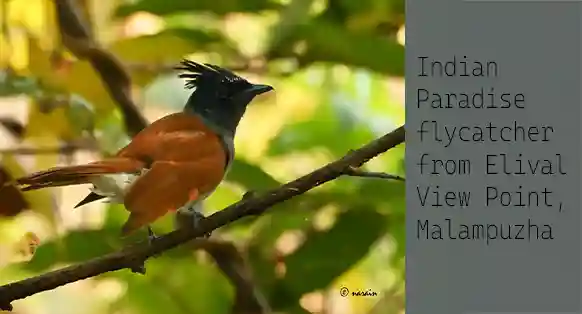
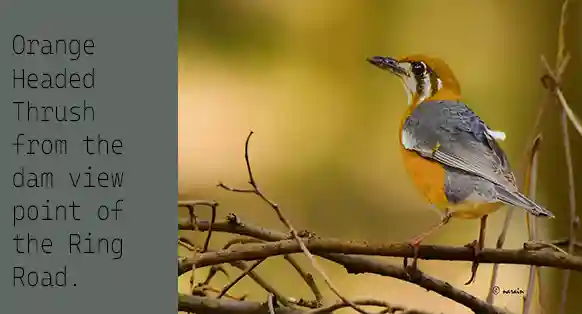
BIRDING LOCATIONS ALONG THE RING ROAD of MALAMPUZHA
Some of the promising birding locations along the ring road of Malampuzha:
On the West / South side of the Reservoir:
Bhagavathy Temple, St. Thomas Church, Thekke (South side ) Malampuzha, Mountain view Point, Dam view Point and English Bridge,
On the East / North side of the Reservoir:
Sri Hemambika Devi Temple, Kava Eco Camp point, Kava Water view Point, Kava Birding Patch, Kava East view point, Onnam Puzha Bridge, Reservoir view point at Anakkal, Mooppan Chola and Velaam Potta.
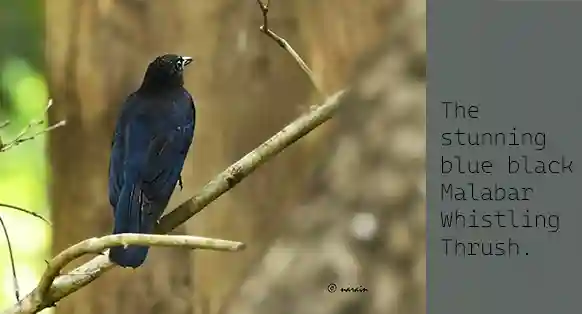
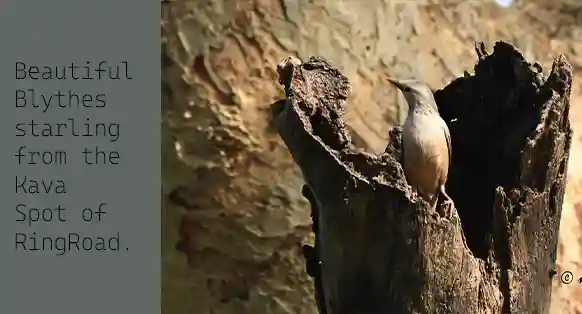
PROBABLE LIST OF BIRDS OF MALAMPUZHA
Birders have counted 100 plus species along the ring road of Malampuzha itself, on various seasons / different period. The best time however remains immediately after the monsoon season ie. from October to February. Though, the birding possibilities are there throughout the year.
The probable list of birds along the ring road of Malampuzha (including Migratory) :
Red-vented bulbul, Red-whiskered bulbul, White-cheeked barbet, Jerdon’s Leaf Bird, Indian golden Oriole, Black-hooded Oriole, Blue-faced Malkoha, Rufus treepie, Large Cuckoo Shrike, Spotted dove, Laughing Dove, Pampadour Pigeon, Tri coloured Munia, Black headed Munia, Scaly breasted Munia, House sparrows, Asian Koel, Greater Coucal, Common Hawk Cuckoo, Malabar Trogon, Indian Pitta, Indian Grey Horn Bill, Blythe’s Starling, Malabar Parakeet, Plum headed Parakeet, Greater Flame back woodpecker, Streak-throated Woodpecker, Ashy Drongo, Greater Tailed Drongo, Black Drongo, Green Bee eater, Common Iora, Small minivet, Orange minivet, Indian Paradise flycatchers, Greenish Warbler, Purple Sunbird and Purple-rumped Sunbird, Barn swallow.
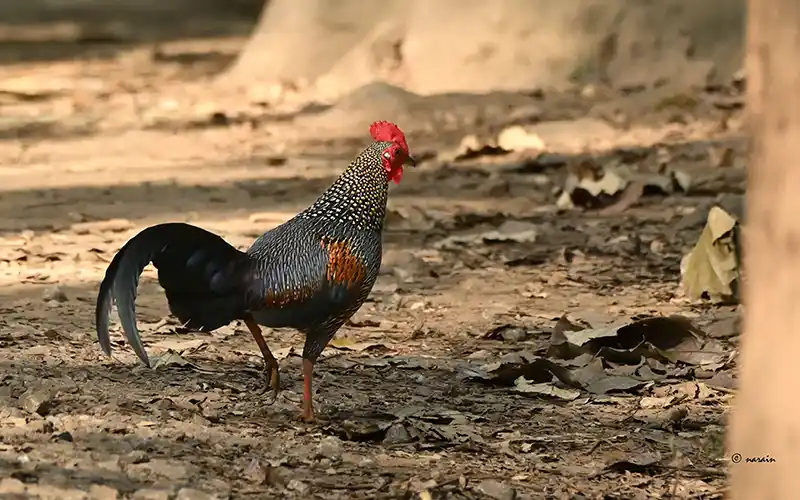
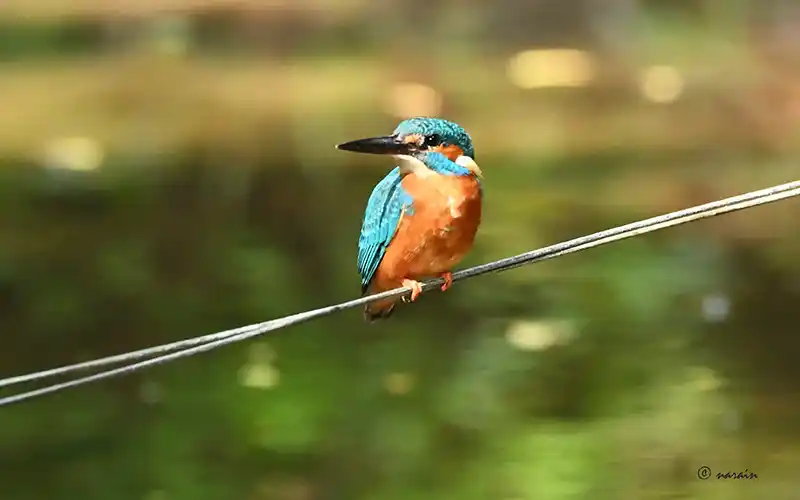
Indian Nightjar, Sree Lankan frogmouth, Jungle Owlet, Brown Fish Owl, Jungle Babbler, Oriental Magpie Robin, Wagtail ( white and grey), Brown Shrike and Bay-backed shrike, Indian roller, Malabar Whistling thrush, Orange headed thrush, Hoopoe, Grey Junglefowl, Indian Peafowl, Common King fisher, White Throated King fisher, Pied King fisher & Oriental Dwarf King fisher, Black kite, Brahminy kite, Shikra, osprey, Oriental Honey Buzzard, Crested Serpent Eagle, River Tern, Darter and Cormorants, Sandpipers Waterhen and swamphens, Painted Stork and Woolly necked stork, Lapwings, Herons and Egrets, Spot-billed and lesser whistling ducks.
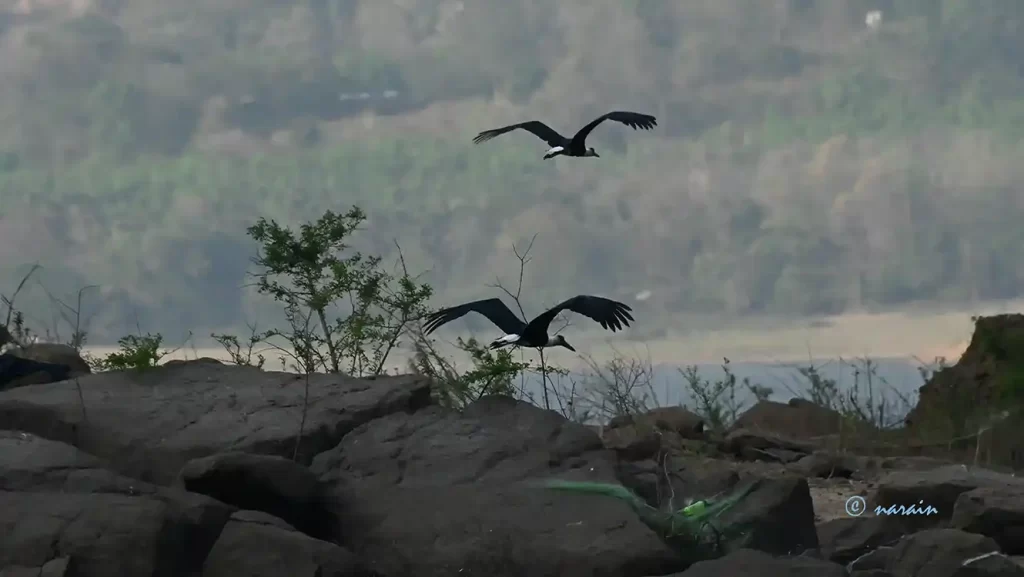

OTHER ANIMALS / INSECTS OF MALAMPUZHA
Very rarely we will spot wild animals like Tiger and Leopards in this area. But one should definitely, watch out for elephants, jungle fox, jungle cats and poisonous snakes. We will come across Hanuman Langurs, Grey Langurs and the Indian Giant squirrels at all times. You may also find different species of butterflies eg. Common Mormon, Common Crow. Jezebel, Indian Skipper, Blue Mormon, Plain Tiger, Grass Yellow, Pieris Napi (the common white). You can find them depending upon the seasons.
MALAMPUZHA LANDSCAPE PHOTOGRAPHY
The reservoir and the entire surroundings throw ample opportunities for the landscape photography through the year. There are several interesting spots ideal for sun rise and sun set photography. The reservoir area was considered as of the most sought after locations, for many movies in the past and even now. This shows the importance of the location as a hot spot for landscape photography too.
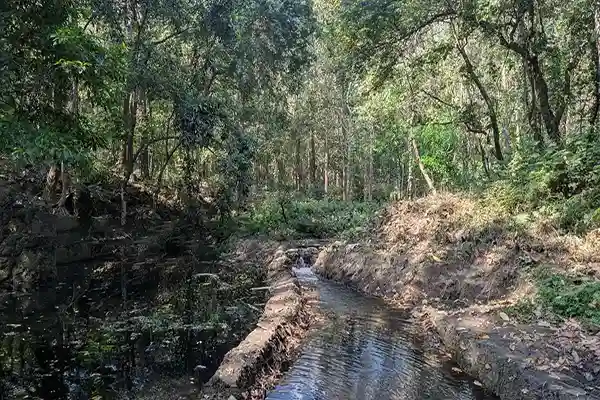
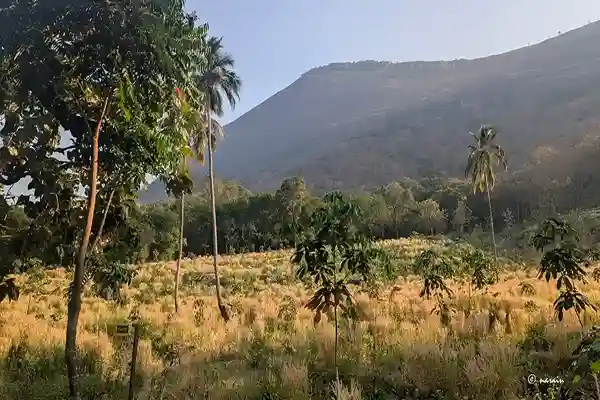
PRECAUTIONS AND SAFETY MEASURES
On the one side of the road lies the reservoir. When the dam is on its highest level of water, the shallow areas on the side of the road are also immersed in water. While driving and walking along the trails for birding one should be very careful esp., on late hours. There are few areas along the ring road identified as dangerous / accident prone / Reserve Forest. As a general rule you are prohibited to enter into such areas. So let’s abide by the rules. To go into the ‘Elival’ forest which lies on the north-west of the reservoir, for birding / bird photography, you need to obtain special permission from the authority concerned. ( For further details please explore here)
Budget and luxury accommodations / Evening and late night restaurants, Coffee/ Tea shops are available along the ring road itself. Appropriate planning by birders coming from other places, will help them to have a hassle free birding.
Before conclude, I wish you a safe and enjoyable birding.

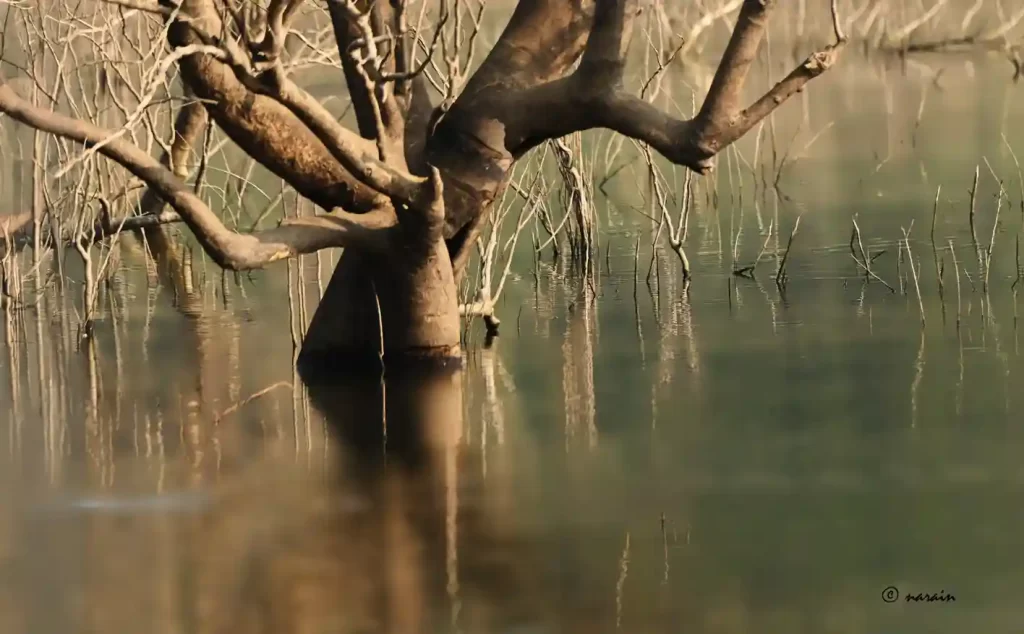
Thanks Ravi for your nice comments
Thanks for your nice words. Its a great motivation for me.